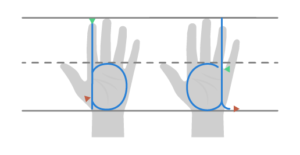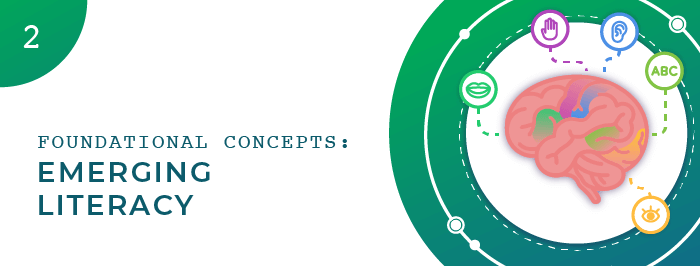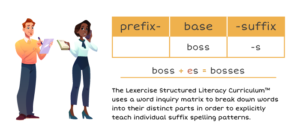Foundational Concepts: Emergent Literacy
Written by Sandie Barrie Blackley, Speech-Language Pathologist
Published on March 28, 2022
Emergent Literacy Skills
The goal of literacy, like language itself, is communication. In our previous post, we introduced comprehensible input – the way, through a variety of sensory stimulation (visual, auditory, touch, etc.), we comprehend language even if we do not precisely understand the meaning (or spelling) of the words. Such sensory input feeds into the complex networks of mental representations that underpin spoken and written language. In this post, we’ll examine some of those mental representations and their role in emergent literacy.
For children with dyslexia and other specific learning disabilities, language fluency is not automatic. While such individuals are capable of enormous creativity and complex understanding, their brains are “wired” differently. Rather than absorbing words through exposure and repetition, they need a more individualized and explicit approach in which each concept is clearly and explicitly defined and then practiced with enough consistency to establish mastery for both reading and spelling.
How Structured Literacy Can Help Children with Dyslexia
Most of us don’t think very much about how we learn a new word, but often with just a few exposures, we learn not just what the word means but also how to use it in different contexts, how to pronounce it, and how to spell it, even with different suffixes. But decades of scientific research demonstrate that to learn to read and spell words, struggling readers and writers do have to consciously think about words and, usually, more than just a few times!
The Lexercise Structured Literacy Curriculum™ provides struggling readers and writers structured opportunities to learn words through listening and speaking, and reading and writing, tailored to the student and supported by brief, daily practice games.
Recognizing Individual Speech Sounds and Syntax
Spoken interaction, otherwise known as conversation, requires turn-taking, joint attention, and words.
Words are made up of speech sounds, which have specific identities and a specific order. Speech sound identity – “bat” vs. “pat” – and speech sound order – “ask” (æsk) vs. “sack” (sæk) – are foundations for reading and spelling. Struggling readers, and especially students with dyslexia, need to be taught to recognize individual speech sounds. Awareness of individual speech sounds is not something that all students “get” intuitively or “pick up” from reading or speech that they hear at home or in the classroom.

Word order (syntax) is also critical to meaning. Consider the difference between “the pet hen” and “pet the hen” or “a boxing chicken” and “a box of chicken.” Same words, different order, different meaning.
Another aspect of language is that words may refer to things and actions that are not present. Remembering and describing yesterday’s game with the red ball requires a complex mental network of words, sounds, and images.
Building Proficient Reading, Writing, and Spelling
Reading and writing (literacy) involve using the alphabet (letters) to represent words and meaning. Each letter has a name and a unique identity. In words, letters are used to represent specific speech sounds, such as the letter -m- that represents the speech sound “m,” and specific meaning elements, such as the -ed suffix that indicates past tense.

To become literate, students have to learn that letters are special and different from other objects. Mirror images of letters (e.g., -b- and -d-) are not identical to one another. Font differences and color variations do not change the identity of letters.
After about 6 months of literacy instruction, most students have mastered these foundations. For students who struggle to master these foundational elements, research proves that early intervention is an important key to future success.
In our next post, we’ll dive a little deeper into the foundational concepts. Meanwhile, if your child has difficulty reading, writing, or spelling, we would be happy to help you find the evaluation and/or treatment that will turn your challenged reader into a reader for life. Schedule a free consultation with one of our highly-trained therapists here.
Improve Your Child’s Reading
Learn more about Lexercise today.
Schedule a FREE
15-minute consultation




